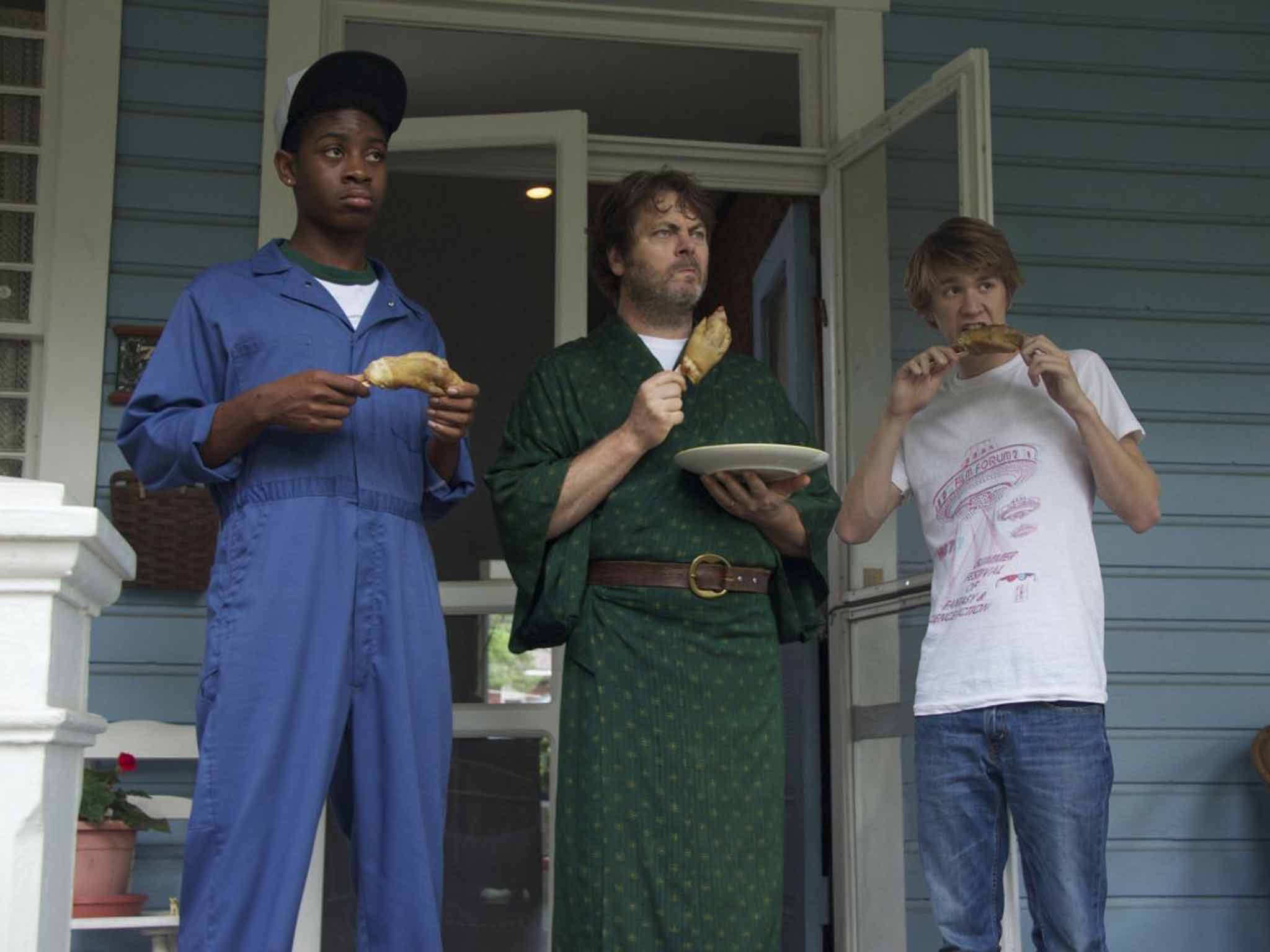Me and Earl and the Dying Girl: Films about film-making can be fun
A hit at Sundance, 'Me and Earl and the Dying Girl' celebrates cinema with a series of joyous parodies

Films about film-making are one of the great staples of cinema. From All About Eve to Day for Night, a host of movies has wallowed in the difficulties of making movies. Many are considered classics but, in the digital age, they also seem dated, set in an age when filmmaking was necessarily expensive and elitist. Today, the process of making a film has never been more accessible: on YouTube and Vimeo, everyone is a film-maker.
Me and Earl and the Dying Girl is the film that brings cinema about the art of film-making into the internet age. Based on a novel by Jesse Andrews, it was the big success at Sundance, winning the US Grand Jury Prize and the Audience Award for US Drama. It then sold for $12m, the biggest distribution deal in the history of the festival.
It's easy to see why: not only is it a cinema-lover's wet dream, it is also a poignant coming-of-age story with lovable characters in the best traditions of John Hughes. The Me of the title is the Holden Caulfield-inspired narrator Greg Gaines, played by Project X star Thomas Mann. He's ordered by his mum to hang out with the dying girl, Rachel (played by rising British star Olivia Cooke), who has leukaemia. The ice on the awkward teen friendship is broken when Greg starts showing Rachel parody films that he has made with his childhood best friend Earl (Ronald Cyler II).
The odd pair started making films before they were 10, and have made 47 in all. They have remade Otto Preminger's Anatomy of a Murder into Anatomy of a Burger and David Lynch's Blue Velvet into Brew Vervet while Werner Herzog's My Best Fiend, about his leading actor, Klaus Kinski, has become My Best Actor Is Also a Dangerous Lunatic.
"It was important to me what films we were going to pay homage to and why," says director Alfonso Gomez-Rejon, who has previously worked on the sets of Martin Scorsese and pays heavy homage to him, as well as to his long-time editor, Thelma Schoonmaker, who was married to Michael Powell. "Mean Streets changed my DNA. I'll never be able to make a film like this again, where I'll be able to pay homage to my heroes directly. It breaks my heart that Buñuel didn't make the final cut. We had a scene shot with an insert of Simon of the Desert and it's still hard on me that I had to cut that."
What's new is that the movie doesn't show film-making as a hardship, but a joy, and something that anyone can do, no matter what their social background.
Contrast this with Fellini's 8½ where the experienced film-maker has run out of ideas. Or Adaptation, in which Nicolas Cage plays the film's screenwriter Charlie Kaufman, who has writer's block. Biopics about movie directors rarely make film-making seem fun.
Me and Earl and the Dying Girl recalls Adi Shankar's "Bootleg Universe" parodies of popular franchises that get millions of hits, as well as Michel Gondry's Be Kind, Rewind, in which a pair of video-store attendants attempt to remake all the films they have accidentally wiped, and Garth Jennings' Son of Rambow, which was inspired by his attempts to re-create scenes from Rambo when he was young.
"These films had to be made by the hands of nine-year-olds and 12-year-olds," says Gomez-Rejon. "Film-makers Edward Bursch and Nathan O'Marsh [collaborators of Wes Anderson] made the films. We selected what equipment they would be using dependent on how old they are supposed to be, so with the films made by two little kids they have to be cruder."

Watch Apple TV+ free for 7 days
New subscribers only. £8.99/mo. after free trial. Plan auto-renews until cancelled

Watch Apple TV+ free for 7 days
New subscribers only. £8.99/mo. after free trial. Plan auto-renews until cancelled
The only difficulty comes when the original film-makers argue that the parody films are infringements of copyright. "We were protected by parody," says Gomez-Rejon. "Jeremy Dawson, our producer, would run a lot of these spoofs and titles and everything through legal to make sure we didn't have problems later on. Sometimes we didn't change them enough and we had to go a little further.
"I had so many movies fall apart at the last minute, I thought it was because of a Gypsy curse," adds Gomez-Rejon. "When I was 17 at the San Gennaro street festival in New York, a palm reader asked me what I wanted to do in my life. When I said 'be a film-maker' she said 'it's never going to happen'. Then every time I looked into the mirror I would see her face looking back at me. She hadn't aged well. On the day my first film, The Town That Dreaded Sundown opened, I was so happy because the curse had been lifted."
'Me and Earl and the Dying Girl' is out on Friday
Subscribe to Independent Premium to bookmark this article
Want to bookmark your favourite articles and stories to read or reference later? Start your Independent Premium subscription today.

Join our commenting forum
Join thought-provoking conversations, follow other Independent readers and see their replies